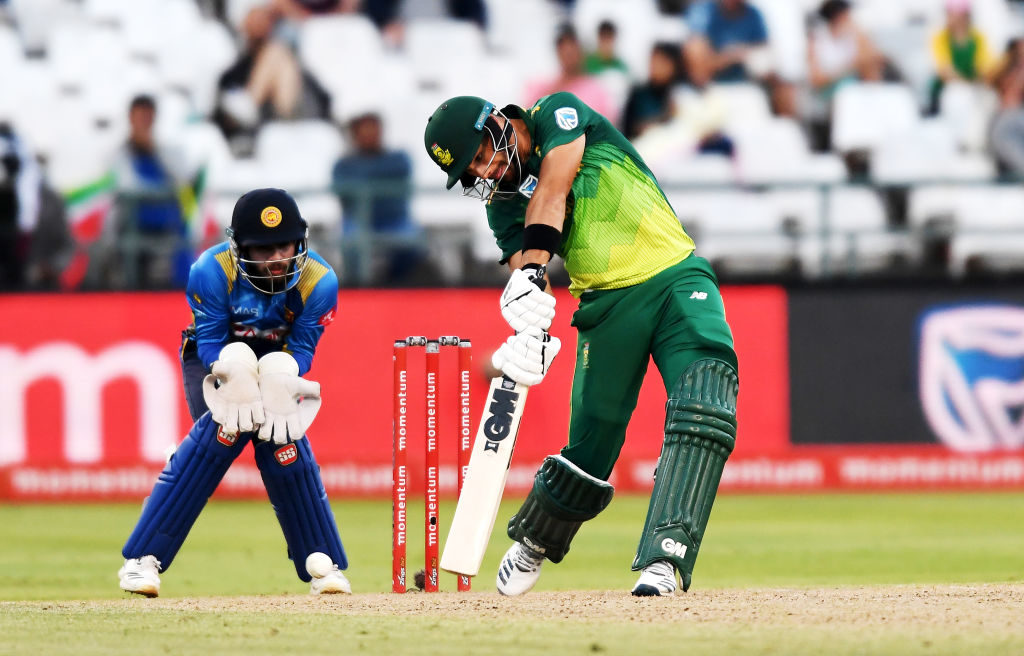Aiden Markram’s declaration that the Proteas want to play a certain ‘brand’ of cricket is concerning because the team has a history of wanting to be something it cannot, writes RYAN VREDE.
On Wednesday, Markram was asked about Temba Bavuma’s early impact as captain. ‘Under Temba’s guidance we have been brilliant so far this week,’ he began.
‘It is encouraging the brand of cricket he would like the Proteas to play. It is exciting that we have got a couple of years to build on something and hopefully when 2023 comes, the team knows exactly what each person’s role is under the brand of cricket everyone wants.’
My heart sunk instantly when confronted with that dreaded ‘B’ word. It triggered PTSD rooted in a myriad past occasions the Proteas have spoken about playing a ‘brand’ of cricket. At least Markram didn’t say ‘brave cricket’, as head coach Mark Boucher had earlier in the week.
For the uninformed, in a South African cricket context, this usually implies an aggressive batting approach, and is accompanied by other played-out phrases, including ‘positive mindset’ and ‘fearless approach’.
I understand the allure of this philosophy and tactical approach. When executed well it allows you to bat the opposition into mental submission and impose your will.
Furthermore, for the leadership group it presents an opportunity to shape their legacy. In years ahead, people could speak about how the ‘Bavuma team’ or ‘Boucher team’ (I assume these men discussed how they want their white-ball team to play) approached the game. That is, provided the team wins consistently playing this ‘brand’ of cricket.
Herein lies the problem. No Proteas team has done so with the consistency to make that their defining quality. The great Australia sides of the 90s and early 2000s certainly did. As did the Sri Lanka team of the mid-90s, which culminated in their World Cup victory in 1996.
The last time the Proteas topped the one-day international rankings – 2017-18 – playing in a manner I imagine Markram is referring to, they had the remains of a golden generation of batsmen, including Quinton de Kock, Hashim Amla, Faf du Plessis and AB de Villiers.
The remainder of the batting lineup was most often comprised of JP Duminy, who shone brightest in white-ball cricket, David Miller, who’d built a reputation for his aggressive approach, and Chris Morris, who could hit a long ball, often.
The cricket gods had blessed South Africa with a generation of players who were equipped to play ‘brave cricket’ (insert rolling-eye GIF here). Yet, none of these players were trying to adhere to a philosophy. These players were simply playing in a manner they felt best expressed their immense gifts and gave them (and by extension the team) the best chance of consistent success.
This approach came naturally to the aforementioned players, as it did the Australia and Sri Lanka teams referenced earlier, and as it does the current generation of England and India players.
The ‘brand’ should be shaped by the resources at your disposal. It can’t be established as a rigid foundational philosophy to which players must adhere, irrespective of their skills range and mental constitution.
I hope this is the approach Bavuma and Boucher take in building their white-ball challenge in the coming years. They have some naturally attacking players in their ranks who have the potential to be moulded into match-winning forces. But talent alone won’t allow their attacking gifts to soar.
Being able to exhibit one’s gift, and adhering to the brand philosophy under extreme pressure, require temperament and talent in equal measure.
There are players who will come up short in the temperament stakes in this context. Some will be discarded because of this deficiency, while others will require a depth of investment that must take into account their limitations when measured against the ‘brand’ objectives.
The declaration that you want to play a ‘brand’ of cricket is an easy one to make. Finding the players who have the talent and temperament to make that brand consistently successful is a wholly more complex matter.
The teams that have achieved this have been laden with greats or future greats of the game. I hope this Proteas squad unearths a bunch of that calibre player in the coming years, and those players all enthral us with their ability to dominate even the most formidable opponents.
Failing that, the ‘brand’ has to be whatever the resources available determine it is. That isn’t an acceptance of mediocrity. It is simply an acceptance of reality.
ODI squad vs Pakistan
Temba Bavuma (c, Imperial Lions), Quinton de Kock (wk, Momentum Multiply Titans), Beuran Hendricks (Imperial Lions), Heinrich Klaasen (Momentum Multiply Titans), Janneman Malan (Six Gun Grill Cape Cobras), Keshav Maharaj (Hollywoodbets Dolphins), Aiden Markram (Momentum Multiply Titans), David Miller (Hollywoodbets Dolphins), Lungi Ngidi (Momentum Multiply Titans), Anrich Nortje (Warriors), Andile Phehlukwayo (Hollywoodbets Dolphins), Kagiso Rabada (Imperial Lions), Tabraiz Shamsi (Momentum Multiply Titans), Jon-Jon Smuts (Warriors), Rassie van der Dussen (Imperial Lions), Junior Dala (Momentum Multiply Titans), Lutho Sipamla (Imperial Lions), Wiaan Mulder (Imperial Lions), Sisanda Magala (Imperial Lions), Kyle Verreynne (Six Gun Grill Cape Cobras), Daryn Dupavillon (Hollywoodbets Dolphins), Lizaad Williams (Momentum Multiply Titans).
T20 squad vs Pakistan
Temba Bavuma (c, Imperial Lions), Bjorn Fortuin (Imperial Lions), Beuran Hendricks (Imperial Lions), Reeza Hendricks (Imperial Lions), Heinrich Klaasen (Momentum Multiply Titans), George Linde (Six Gun Grill Cape Cobras), Rassie van der Dussen (Imperial Lions), Janneman Malan (Six Gun Grill Cape Cobras), Sisanda Magala (Imperial Lions), Dwaine Pretorius (Imperial Lions), Tabraiz Shamsi (Momentum Multiply Titans), Lutho Sipamla (Imperial Lions), Kyle Verreynne (wk, Six Gun Grill Cape Cobras), Pite van Biljon (VKB Knights), Migael Pretorius (VKB Knights), Lizaad Williams (Six Gun Grill Cape Cobras), Wihan Lubbe (Warriors).







